'An Echo of Belonging': Ebenezer Baptist Church commences 150th year of faith in Austin
- Oops!Something went wrong.Please try again later.
The faithful started to assemble at 9:30 a.m. on Sunday, April 21. They slipped through the doors of the Gothic Revival church on the historic corner of East 10th and San Marcos streets. As they glided through the vestibule and into the sanctuary at Ebenezer Third Baptist Church, congregants exchanged warm, sometimes formal, sometimes informal greetings. Some laughed and joshed, others hugged and shook hands.
With an original seating capacity of 800 on 20 rows of pews divided into three sections, the buff brick church, trimmed in limestone, was sanctified almost 70 years ago in 1955.
The congregation, however, goes back 150 years to 1875, as Reconstruction was ending and dozens of mostly segregated Black churches began to blossom in freedom colonies of independent, landowning African Americans around the fringes of Austin — north, south, east and west.
On the hill where Ebenezer rises, formerly part of the French Legation's tract, the Robertson family had enslaved African Americans. Later, the seeds of Austin's first Black public schools were planted at this intersection.
More: Where can you learn more about early Black history in Austin? These sites are worth visiting
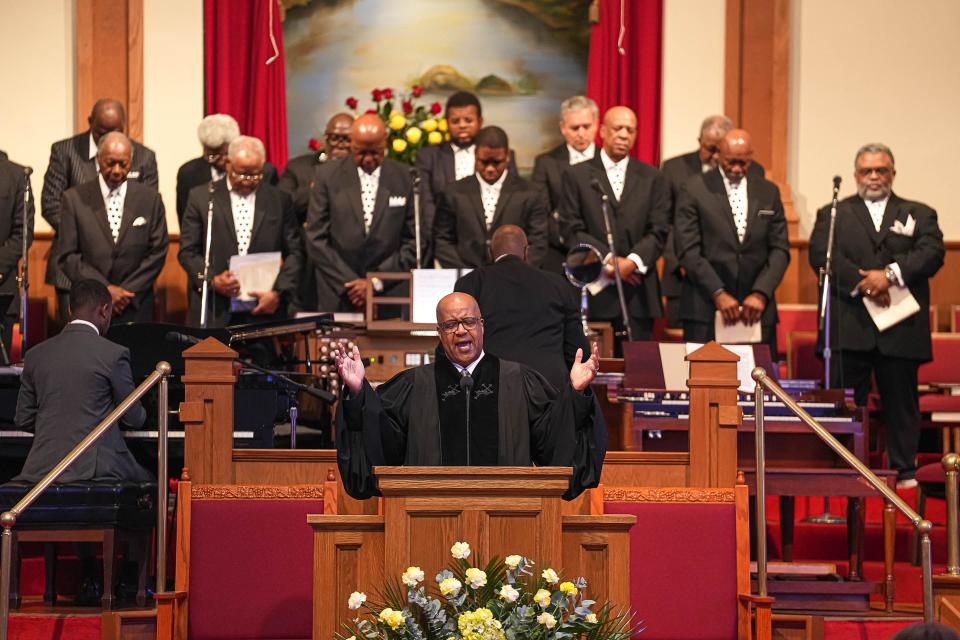
This day, during a service that started just after 10 a.m. with close harmonies delivered by the Men's Chorus — one of the church's six choirs — the Rev. Dr. Ricky Freeman preached a crescendoing sermon on Matthew 11:2-6, titled "Are you the one?"
Responding to John the Baptist's question to Jesus, Freeman said: "We want to be reassured that things and people are real and authentic. We are skeptical. We ask: 'Are you the one? Are you the one?'"
One thing that the Ebenezer crowd could be sure of, Ebenezer is real. Ebenezer is authentic.
It has been the faith home of many of the city's African American leaders through much of its history — recently, Judge Harriet Murphy, the first Black woman appointed a permanent judge in Texas, was memorialized here — and while its congregation has aged and many are geographically scattered, it remains one of the palpable hearts of East Austin culture.
Other Black East Austin leaders have been associated with Wesley United Methodist, St. James Episcopal, Holy Cross Catholic, Mt. Calvary Missionary Baptist, Greater Mt. Zion Church, David Chapel Missionary Baptist and dozens of other sacred spots.
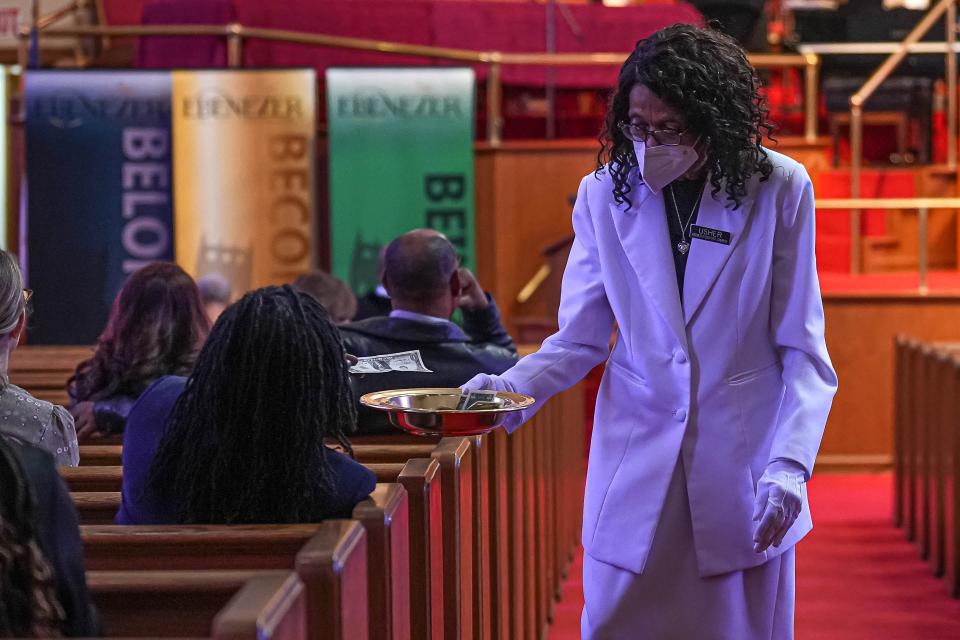
Yet this day, as light poured through the modernist stained-glass windows and spring blossoms nodded in front of the red-curtained baptistery and the altar below, it felt as if history were streaming through the church.
Teamed with pianos, drums and other instruments, the Men's Chorus sang from multiple musical traditions. Freeman, who has served as pastor since 2012, told stories about his predecessors who had led the church since 1875.
His words were not without humor. Freeman knows his followers and their long memories, which might outmatch his on any given day.
"I'm sure you'll have thoughts and feelings," he said with an indulgent smile. "Please share them. I am a pastor, not a historian."
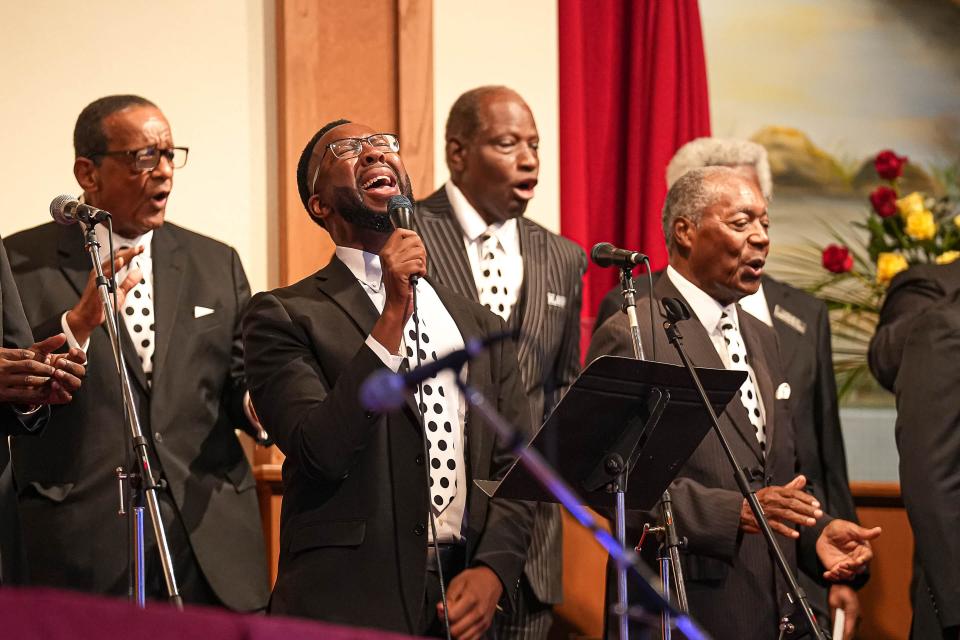
A jubilee year for Ebenezer
Today's leaders of Ebenezer Third Baptist Church take their 150th anniversary seriously.
While April 21 witnessed the pastoral kickoff, a printed calendar of events, published by steering committee chairs Deacon Leroy Davis and Trustee Gloria J. Davis, lays out a full year of events stretching from Feb. 18, 2024, to Feb. 16, 2025.
During the entire month of July, for instance, a historical exhibition about the church, "An Echo of Belonging, Becoming and Believing," will run at the George Washington Carver Library.
More: 'We didn't let this place die': St. John Colony, Texas, endures for 150 years of grace
On July 13, a special 1987 video tribute to famed Ebenezer music director and composer Virgie Carrington DeWitty will be shown, to be followed by a presentation about the history of music at the church on Oct. 27.
It all comes to a head on Feb. 16, 2025, with the sesquicentennial anniversary service. (Check for updates at ebc3austin.org; the American-Statesman plans to cover additional events.)
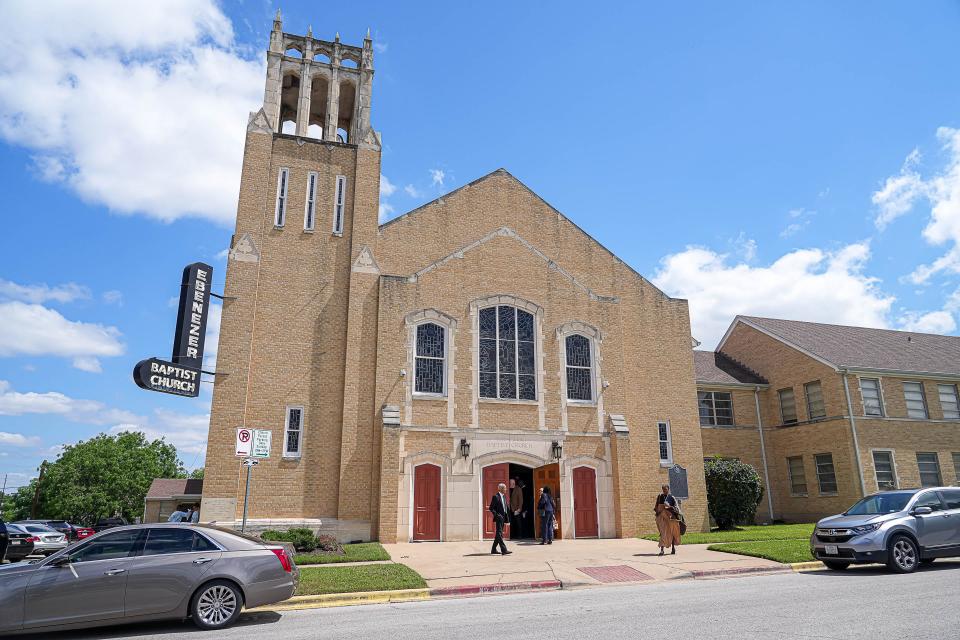
A new church is born
Like many Austin churches, Ebenezer started in someone's home, in this case, that of Eliza Hawkins. In 1875, a full 18 members met at her residence at 1104 E. 10th St.
Itinerant preachers such as E.S. Corn and C. Ward nurtured the faithful until early resident pastors — such as Andrew Herbert, Chester Anderson, C.P. Hughes and A.W. Moss — were sent to shepherd the congregation.
By 1884, according to a 1957 souvenir program titled "Ebenezer (Third) Baptist Church: A Religious Epoch," the congregation had built a brick church at Catalpa and Curve streets. For a while, the group's administrator was none other than L.C. Anderson, an educational pioneer whose name graces Anderson High School in Northwest Austin.
A tabernacle was added at East 10th and Waller streets in 1915.
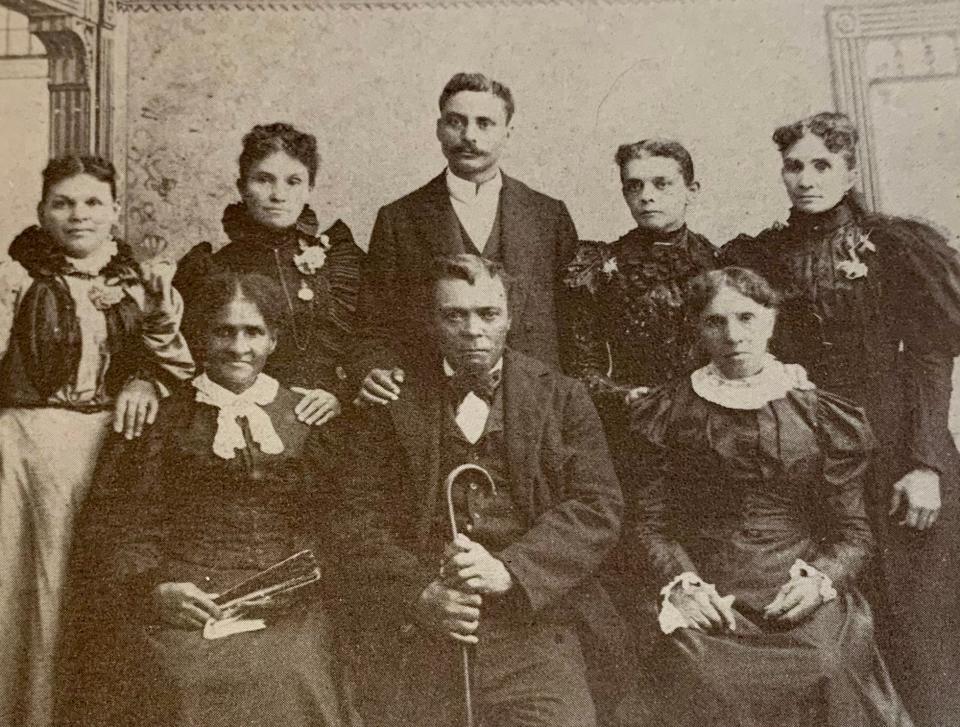
By this time, the St. John Regular Baptist Association, founded in 1867 as a network of mostly rural Black churches, had purchased extensive land northeast of Austin for an orphanage, school and revival camps that attracted more than 20,000 faithful a year. (The St. John — alternatively rendered St. John's — and Highland neighborhoods, along with Austin Community College's main campus, now occupy much of that land.)
More: What ever happened to the St. John’s Orphan Home?
After World War II, the orphanage faded away, but Ebenezer continued to grow. In 1950, construction began on the current sanctuary, and a nursery school and other structures were added. In a small way, the crowning glory was the senior housing built across East 10th Street, since it anticipated the diaspora of East Austin congregants after the 1968 enactment of fair housing laws and ordinances, which sometimes dislocated the elderly from lifelong Austin communities.
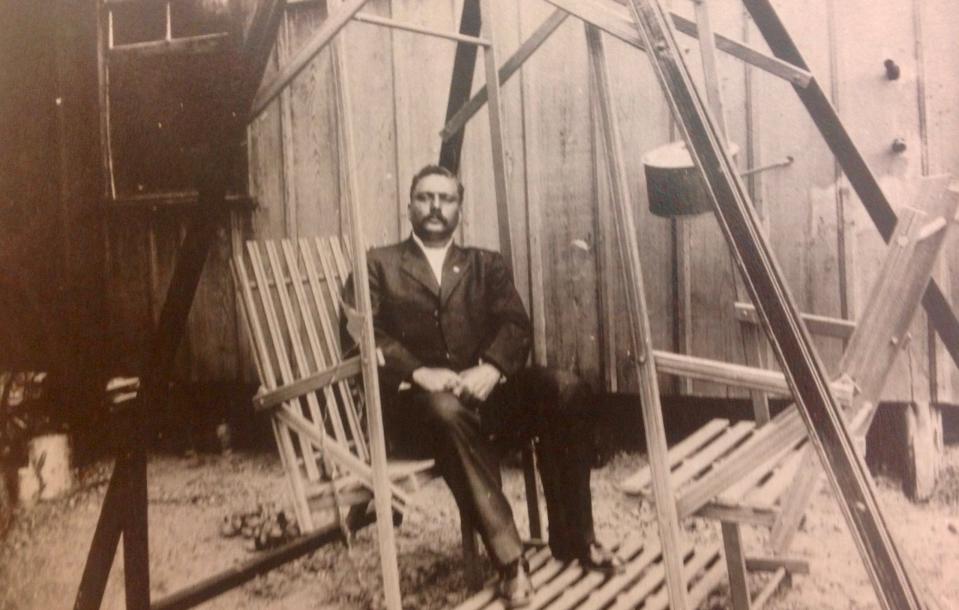
Pastors who led Ebenezer
In many Christian faiths, the pastor is the visible manifestation of the church. Yet as anyone who has spent time in a faith community will attest, the whole will not thrive without leaders who embody its parts, in this case, deacons, trustees, music directors and others.
Yet as Ebenezer looks back over the last 150 years, a good place to start is with the men — it has always been men — who have led the congregation.
The first great Ebenezer pastor was Lee Lewis Campbell, who served from 1892 to 1927. He was the driving force behind Ebenezer's first big growth spurt and spearheaded the founding of the orphanage on the St. John Association grounds. He served for 24 years as president of the General State Convention and 33 years as moderator of the St. John Association.
More: The high-spirited daughters of ‘East Austin’s Pastor’
"When they held his memorial services, there were 5,000 to 6,000 in attendance," Freeman said in April about Campbell. "The services lasted from 5:30 a.m. to 5:15 p.m."
Freeman's congregants responded to this bit of history with audible surprise and perhaps a little dismay. No doubt some had attended some protracted Baptist services in their time.
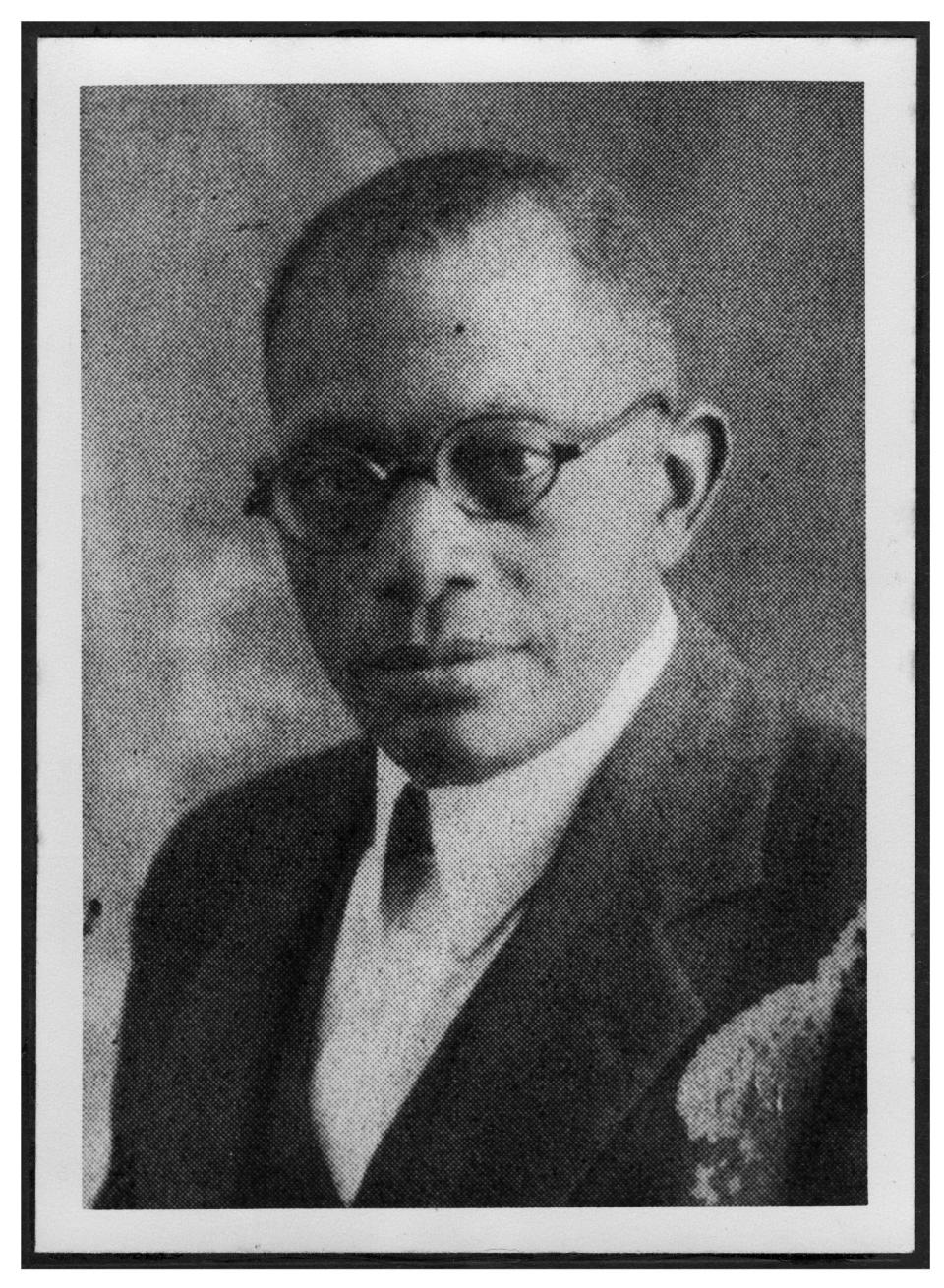
Serving from 1928 to 1949 was Jerome Christopher Lott, considered a triumphant evangelist and organizational leader. (I can't yet pinpoint whether he was distantly related to the family of Virgil Lott Sr., the first Black graduate of the University of Texas Law School, a family that produced several other distinguished leaders in Austin.) Among his higher duties, he chaired the Foreign Mission Board of the National Baptist Convention of America. During this period, Ebenezer ran quite a few missionary societies.
Robert L. Rowe served from 1949 to 1968. The native Texan, who had attended Bishop College in Dallas, oversaw many new building projects on the church campus, including the current, handsome sanctuary.
Born in Wichita, Kansas, and also educated at Bishop College, Marvin C. Griffin spoke from the Ebenezer pulpit from 1968 to 2011. He was the first African American to graduate from the Southwestern Baptist Theological Seminary in Fort Worth. He earned his doctorate at the Austin Presbyterian Theological Seminary. Griffin was also the first Black chairman of the Austin school board.
During his time, Ebenezer counted some 1,200 members, as opposed to about 500 today.
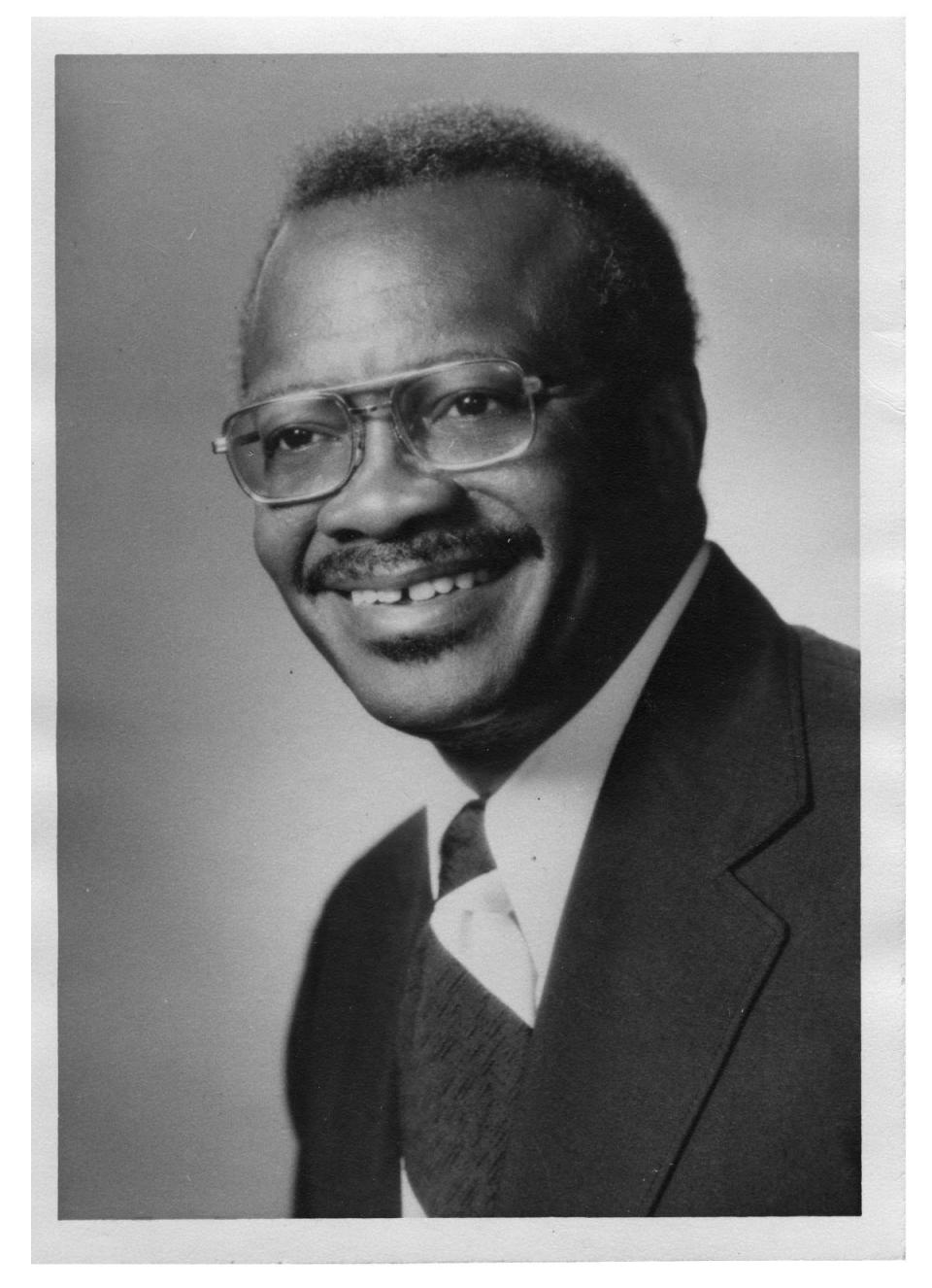
According to a 2010 interview with "The History Makers," a digital repository about the Black experience, Griffin helped found the East Austin Economic Development Corporation, and in 1990, along with other board and church members, he helped earn a grant that allowed the Ebenezer Child Development Center to construct a new facility.
A collection of Griffin's ministerial research, sermons, his political involvement and his leadership in the Baptist Convention at the state and national level, beginning with his education in 1940 and ending with his retirement in 2011, is available through the Texas Collections at the Baylor University Library.
A greater meaning for Ebenezer
The history does not end there. Freeman follows in the distinguished line of his predecessors. A native of Chicago, he received his call to the ministry when he was 16 years old and later preached at several Illinois churches. He earned degrees at Bishop College in Dallas, Garrett-Evangelical Theological Seminary in Evanston, Illinois, and Northern Baptist Theological Seminary in Lombard, Illinois. Like other Ebenezer pastors, Freeman has served in leading denominational roles as part of state and national Baptist organizations.
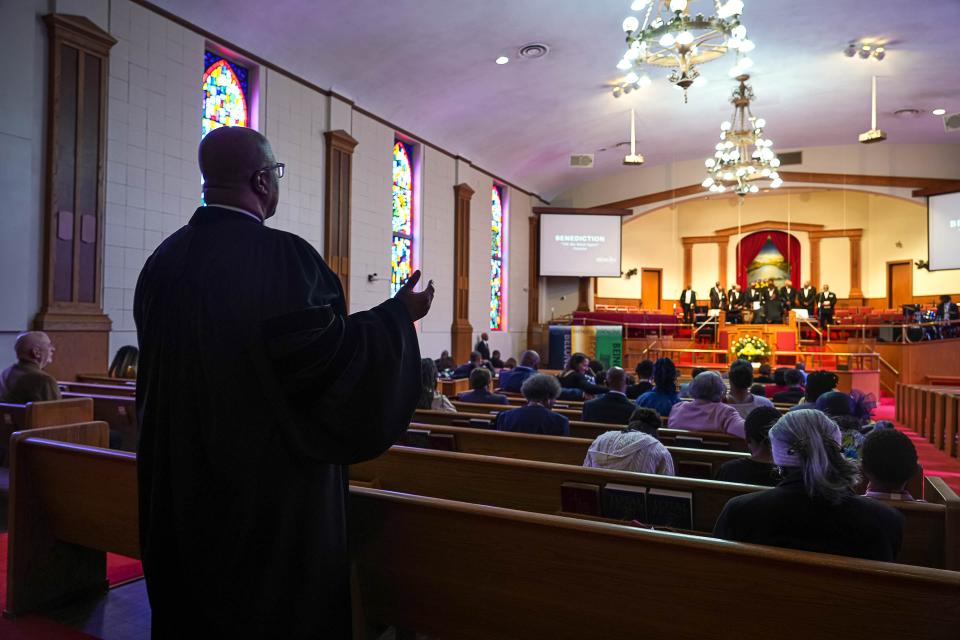
During this "Gateway to the Sesquicentennial" period, Chairpersons Gloria and Leroy Davis, with Freeman's guidance, hope that the presentations, videos, exhibits, musical tributes and social receptions reflect the changing dynamics of the community, from the early days of freedom colonies during the 19th century to the rise of formal segregation — as well as a deepening sense of cultural affinity as experienced in partial isolation — in the early 20th century; from the days of leadership in the civil rights movement locally, while fighting the neglect of Central East Austin, to times of necessary adjustments as churchgoers left the rapidly evolving blocks around the major stems of East 11th and East 12th streets.
"Very few of us live in the immediate community," Gloria Davis said. "Those who used to walk to church, many of them drive in."
"We hope people learn not only the rich history of our church," said her husband, Leroy Davis, former principal of Kealing Middle School, "but also the part our church played in our community, in Austin as well as in the state, national and international spheres."
This article originally appeared on Austin American-Statesman: Ebenezer Third Baptist Church in Austin celebrates a year of tributes

